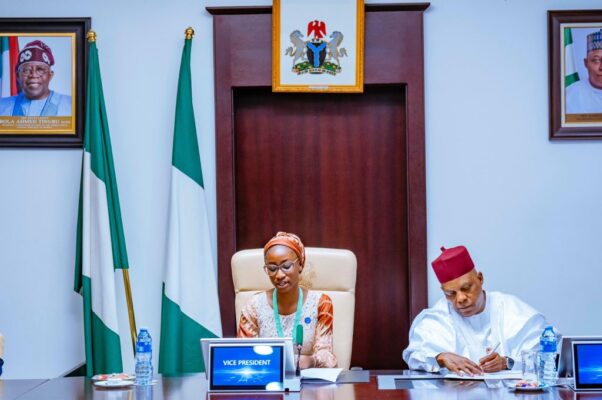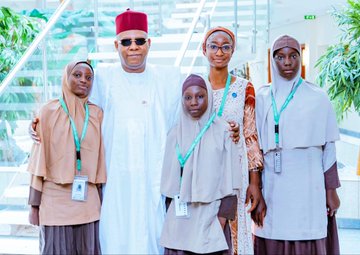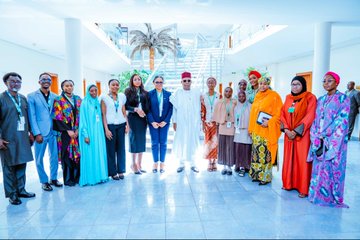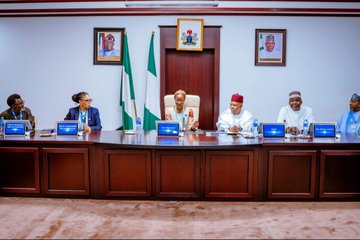In a symbolic gesture of mentorship and support for the girl-child, Vice President Kashim Shettima on Monday stepped aside to allow a teenager, Joy Ogah, to sit in his chair and oversee the affairs of the Office of the Vice President for one day.
The event, which took place at the Presidential Villa in Abuja, was part of an engagement between the Vice President and a delegation from Plan International, led by its Director of Programme, Quality, and Innovation, Helen Idiong. It was also seen as a reaffirmation of the Tinubu administration’s commitment to promoting girl-child education and gender equality.
Addressing the delegation, Vice President Shettima assured development partners and stakeholders of President Bola Tinubu’s unwavering dedication to advancing girl-child education across the country.
“In President Bola Tinubu, you have an ally you can believe in and invest your trust in,” Shettima said, noting that among the government’s key interventions, the school feeding programme remains essential to keeping children, especially girls, in school.
He also described First Lady Senator Oluremi Tinubu as a testament to the power of education and empowerment, saying her journey exemplifies how “a properly empowered and supported girl-child can blossom into a great leader.”
“I want to assure you, on behalf of President Bola Ahmed Tinubu, that this government is gender-friendly. We believe in inclusivity. We cannot disenfranchise half of our population and expect to grow as a nation,” he added.
READ ALSO: Brazil’s Vice President Arrives Nigeria For Historic Strategic Dialogue
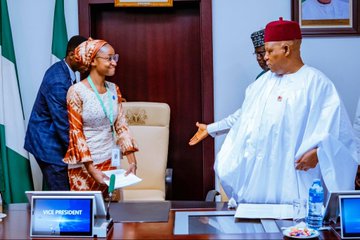
After his remarks, the Vice President invited Joy Ogah to take over his seat for a day and address the nation, an opportunity she embraced with enthusiasm.
Speaking from the Vice President’s chair, Miss Ogah urged government officials, policymakers, and citizens to take deliberate actions toward advancing girl-child education and protecting the rights of every girl. She also called for free sanitary products in schools and improved access to water, sanitation, and nutrition for Nigerian children.
She highlighted the troubling reality that 10.5 million children remain out of school across Nigeria, with more than 60 percent of them being girls.
According to her, Nigerian girls can become leaders if the necessary interventions are implemented by relevant authorities and stakeholders.
“We must invest in education that is safe and inclusive for every child in Nigeria. When girls are protected, peace becomes possible.
“I may be the Vice President for a day, but the struggles I represent cannot end in a day. They must continue in our policies, our classrooms, our conversations, and our budgets,” she said.

